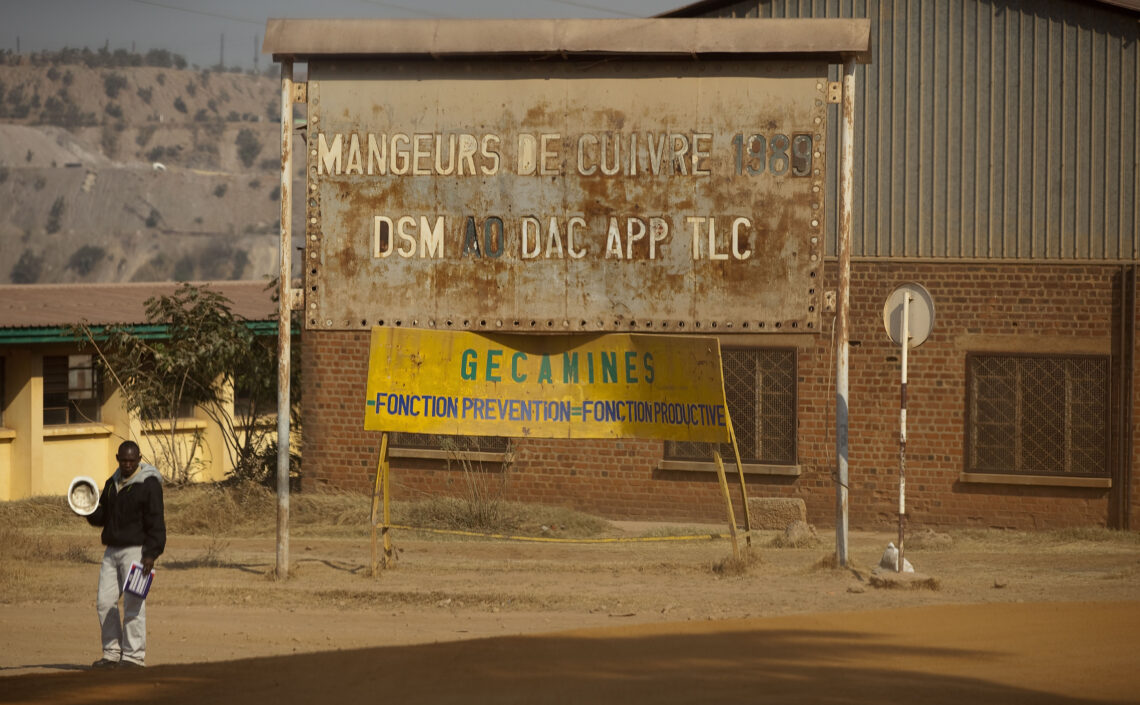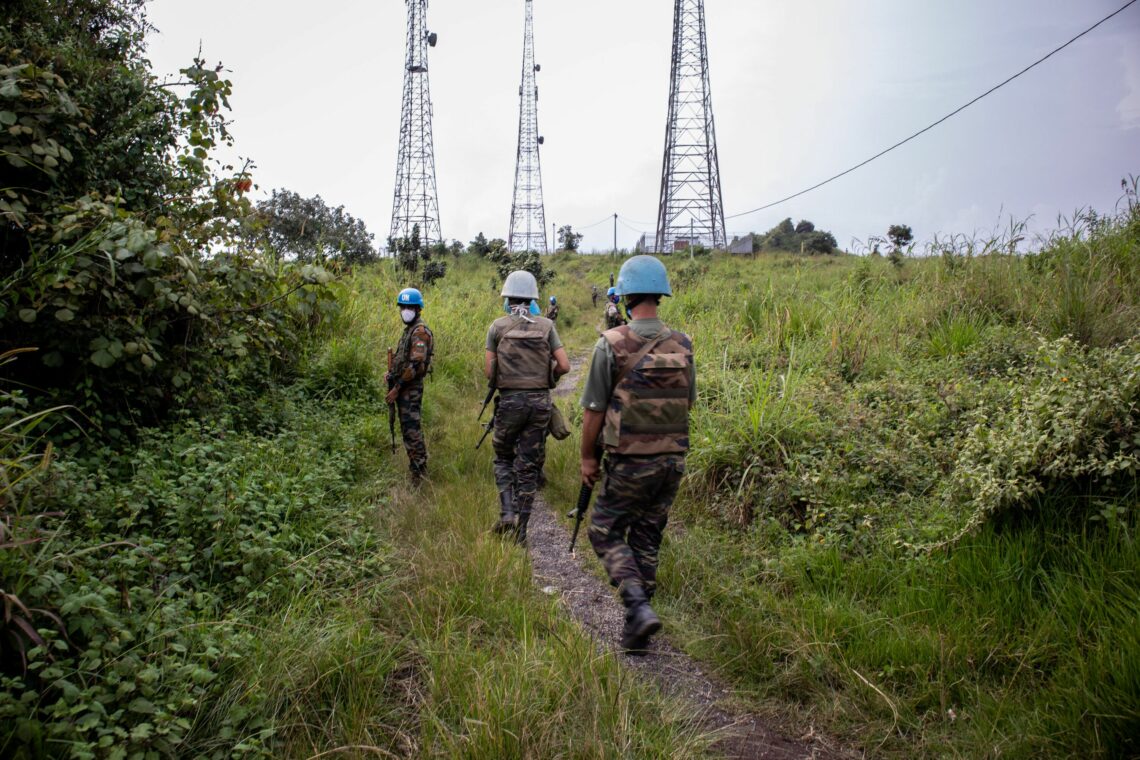The risks of the post-Kabila era in the DRC
President Felix Tshisekedi came to power in the Democratic Republic of the Congo thanks to an agreement with the former long-reigning president, Joseph Kabila. The deal fell through in 2020 – and Tshisekedi has since been co-opting Kabila loyalists to consolidate his power.

In a nutshell
- President Felix Tshisekedi is off to a bad start in Congo
- His deal with former President Kabila did not hold
- The political scene is too divided to reform the country
In the Democratic Republic of the Congo (DRC), Joseph Kabila, son of former president Laurent Kabila, was in power for 18 years. During this period, he and his allies developed a far-reaching power network. Under his leadership, the security situation improved after the first and second Congo Wars. But some regions of the DRC remain ungovernable because of ongoing armed conflict and chronic insecurity.
Progress on the economic front has been modest. Despite the positive effects of the commodities boom, sustainable growth has been compromised by poor governance at the state and provincial levels, lack of adequate infrastructure, an extremely challenging business environment and poor regulatory frameworks.
With 90 million inhabitants, the DRC is Africa’s third-most populated country. Growth has not kept up with demographic demands. In 2018, 72 percent of the population lived in extreme poverty and 43 percent of the children were malnourished.
The country ranks 135 out of 157 in human capital development, below the sub-Saharan African average, and 183 out of 190 countries in the World Bank ease of doing business index. Even in the best-case scenario, the DRC’s road out of poverty will be long.
A bad start
Confronted with international and domestic pressures (including opposition from armed militias), Joseph Kabila eventually decided not to contest the 2018 general election. However, he still held significant control over the electoral machinery. One week before the electoral commission announced the results, the Common Front for Congo (FCC), a coalition aligned with Joseph Kabila and his People’s Party for Reconstruction and Democracy and Heading for Change, controlled by Felix Tshisekedi and his party (the Union for Democracy and Social Progress) reached an informal agreement.
According to the National Electoral Commission, Mr. Tshisekedi won the presidential election with 38.6 percent of the vote. Martin Fayulu, the candidate whose profile and program was most pro-business and more aligned with the principles of liberal democracy, secured 34.8 percent of the vote. Although the results were contested by both national and international observers, the Supreme Court dismissed Mr. Fayulu’s complaints and validated the results announced by the commission.
The Kabila-Tshisekedi alliance has divided power in a way that prevents the implementation of reforms.
Pro-Kabila parties, in turn, had secured 305 of the 500 seats in the National Assembly. The informal agreement reached between Messrs. Kabila and Tshisekedi granted the former president immunity from prosecution and allowed the FCC to appoint the prime minister and key cabinet members (Kabila loyalists made up roughly two-thirds of the 67-member cabinet). Moreover, the Kabila faction retained significant control in most provinces, while the deal paved the way for a “Putin-Medvedev-Putin” solution by establishing that the parties would support an FCC candidate in the 2023 presidential elections.
On the domestic front, the performance of President Tshisekedi during his first two years in office has been far from impressive. While he has been lauded for advances in one of his flagship projects – providing free primary schooling – the World Bank has recently announced the suspension of funding to the initiative due to “fraud and corruption.”
In practice, the Kabila-Tshisekedi alliance divided power and influence in a manner that prevents the implementation of much-needed reforms. In 2020, when the FCC accused the president of manipulating appointments to the Constitutional Court to extend his political influence, it became clear that the deal would not last.
New allies
Considering the country’s political fragmentation and the scale of its economic and social problems, any transition to a post-Kabila society will be long and challenging. The official launch of this “de-Kabilization” was in December, when President Tshisekedi announced the end of the coalition with the FCC.
Shortly after, the president secured the first victory when a majority in the National Assembly voted out the pro-Kabila president of the legislative body, Jeanine Mabunda.
Chinese companies and investors control almost 70 percent of the mining sector.
At the same time, a new coalition was formed: Sacred Union of the Nation, a political bloc designed to change the balance of power in the National Assembly. The alliance includes two important opposition leaders, Jean-Pierre Bemba (Movement for the Liberation of the Congo) and Moise Katumbi (Together for Change), who were both in the Lamuka opposition platform with Martin Fayulu.
Considering the pro-Kabila majority in the National Assembly, President Tshisekedi decided to co-opt rather than antagonize loyalists, and managed to secure the support of 200 pro-Kabila MPs. Following a vote of no confidence, the pro-Kabila Prime Minister Sylvestre Ilunga Ilunkamba handed his resignation to the president.
While the political influence of Joseph Kabila in the National Assembly has been drastically reduced, dismantling his vast network of patronage and power (especially in the intelligence services and some security sectors) may prove more difficult.
Critical issues
There are two distinct but interlinked obstacles to growth and stability in the DRC. The first is that some extremely impoverished regions remain outside the state’s control, allowing various armed groups to proliferate. The second is poor governance, leading to decades of weak economic performance, persistent poverty, and chronic corruption.
A brighter future would require a series of critical reforms in many areas, especially electoral law, anti-corruption policy, the mining system and state-owned companies. (Between 2013 and 2015, an estimated $750 million paid by mining companies to tax agencies never made its way to state finances.)

Regions like Katanga or the Kivu would also need to undergo a stabilization process. In Katanga, which accounts for 95 percent of the country’s exports, there has been a revival of long-standing secessionist aspirations. The mineral-rich Kivu, in turn, was the epicenter of the first and second Congo Wars and remains an operational basis for both domestic and regional militias.
Comparative advantage
One of the main advantages of President Tshisekedi over his predecessor has been his capacity to improve regional and international relations. The rapprochement between Kinshasa and Kigali, in particular, has contributed to a gradual (but fragile) process of regional stabilization. Considering long-standing regional tensions, the president’s decision to allow Rwanda and Burundi to fight opposition militias operating in the DRC, is not without risks. However, having recently taken over the rotating chairmanship of the African Union for 2021 may increase Mr. Tshisekedi’s regional leverage.
The change in leadership has also improved relations between Kinshasa and Washington. Soon after the election, President Tshisekedi visited the United States where he declared his commitment to democratization and stability, and asked for support in critical areas, including the reform of the military and the war on corruption. Pressure from Washington – along with political calculations – led to his dismissal of several high-ranking military personnel involved in human rights abuses.
The president’s ambitious reform agenda is likely to fall short of expectations.
But Kinshasa under Mr. Tshisekedi’s leadership has also grown closer to Beijing. The DRC was one of the five countries visited by Chinese Foreign Minister Wang Yi during his African tour in January 2021. During the visit, partial cancellation of the DRC’s debt to China was announced. Beijing sees the DRC’s mining sector as a strategic supply source; the country is home to 51 percent of the global cobalt production and accounts for around 60 percent of the total estimated reserves. Despite the effects of the pandemic, Congolese exports to China (mostly mineral products) increased by 30 percent in 2020. Moreover, Chinese companies and investors control almost 70 percent of the country’s mining sector.
Scenarios
Taking into account the DRC’s economic, political and security challenges, two base scenarios must be considered.
President Tshisekedi until 2023
Under a first, more likely scenario, President Tshisekedi will be able to remain in power until 2023, thanks to both domestic and international factors. Internally, his rule will be guaranteed by a broad yet volatile parliamentary coalition. On the international front, the fact that the U.S., China, and Rwanda (a key regional power) all wish to see the country stable will likely counteract many potential political and security challenges.
However, even under this scenario of relative stabilization, the implementation of the president’s ambitious reform agenda is likely to fall short of expectations. While the president will be able to appoint a cabinet, a new electoral commission president and new boards for the central bank and state companies, the minimum consensus required for meaningful changes will likely stay out of reach. The Sacred Union of the Nation is made up of leaders with distinct and sometimes irreconcilable programs, ambitions, and clienteles. This will hinder the reform of electoral law, increasing the risk of violence before, during and after the 2023 elections.
On the economic front, China’s extensive control over mining resources and operations will likely compromise the much-needed structural reforms of the sector. However, attaining some visible progress, if only modest, will be necessary if the DRC is to secure financial support from the International Monetary Fund and the World Bank.
Snap elections
Under the second, less likely scenario, political volatility will force President Tshisekedi to invoke article 148 of the constitution to dissolve parliament and call early elections. This could trigger an early comeback of President Kabila, who has moved to his farm in Katanga, from where he established a “crisis committee.” This scenario could force Mr. Tshisekedi to seek a broader alliance, eventually trying to co-opt Joseph Kabila himself.







